Can I Leave Cat Food Out All Day?

Feline eating habits vary by individual, and even an individual cat's eating habits may not be consistent from time to time. If you factor in a busy schedule jam-packed with work, school, and other activities, deciding on the best way to feed your cat requires you to consider a lot of factors. If you decide to plan out your cat's mealtimes, things are pretty straightforward, logistics-wise. For most cats, a feeding schedule simply requires you to determine the correct portion size and the feeding times that work for the both of you.
As stated above, however, many pet parents have chaotic schedules that aren't conducive to set feeding times. Additionally, your cat may be a slow eater and prefer to nibble throughout the day. If you're unable to commit to a strict, consistent feeding schedule, you may opt for the free feeding method. Free feeding involves leaving your cat's food out, allowing them to eat when they want to. However, this method can make it more difficult to monitor your cat's appetite and weight. Additionally, spoilage and food safety must be taken into account.
Can I Leave Cat Food Out All Day?
The thought of being able to set a bowl of cat food out before work entices cat owners everywhere. How much easier does it get? However, whether or not it is recommended to leave food out all day depends on the type of food you are giving to your cat: dry or wet.
Dry Cat Food
Broadly speaking, dry cat food (kibble) can be safely left out for several days. Dry food is less inviting for bacterial growth and therefore less likely to become contaminated. Kibble is processed at higher temperatures, meaning most bacteria is killed off during the cooking process.
While your cat's dry food should be safe after several days left out in the open, we highly recommend throwing out leftovers and washing the dish at the end of each day. You may not have to worry about the accumulation of bacteria, but kibble grows stale and loses some of its nutritional value with each passing day. Just because it's safe for your cat to consume doesn't mean your cat will enjoy doing so.
If your cat eats dry food and is a picky eater who refuses to eat leftover food, consider purchasing a Nano Automated Pet Feeder. This one-of-a-kind pet feeder dispenses your pet's food at the time you select and dispenses the right amount of food every time. The storage container that the food sits in has GAMMA SEAL TECHNOLOGY that locks out harmful moisture and light and keeps freshness locked inside the container leaving every last piece of kibble as fresh as possible so that no cat food goes to waste.
Wet Cat Food
Wet cat food is an entirely different ballgame, so strap in. As much as we'd like to be able to advise emptying a can of food on a dish and leaving it out for your kitty to nibble on throughout the day, extra care needs to be taken. Canned cat food is sterile until the seal is broken. Once the can has been opened, any unused portions must be stored in the refrigerator.
Some experts will swear by not leaving wet cat food out for longer than 20-30 minutes, but the reality is, this just isn't doable for most cat parents. For starters, your cat may need more time than that to eat, and we never recommend rushing mealtime. Depending on your schedule, you may also need to step out soon after feeding your cat. So how long can you actually leave wet cat food out for?
Leading cat food manufacturer, Purina advises removing uneaten wet food after an hour, while Hill's recommends removing the food after four hours at room temperature. Be sure to throw away all leftovers. If you're only serving half of the can, make sure the can is properly covered and refrigerate the rest immediately.
Cat Food Storage Best Practices
Storing Dry Cat Food
Your current dry cat food storage method may involve nothing more than resealing the bag it came in with a chip clip. While that's certainly a popular method that saves a lot of time, we recommend treating your cat to the best and ensuring long-lasting freshness with reusable pet food storage containers. Storing kibble in airtight containers helps to keep your cat's food full of flavor and nutritional value. There are a number of options available to suit your needs, including stackable options if you're short on space.
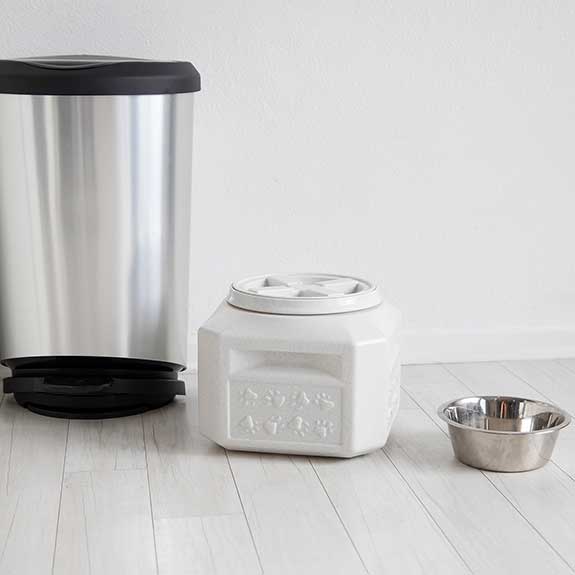
The FDA recommends keeping your pet's food in its original container so that the specific UPC and lot information of the batch is available should you need to make a health complaint. While this may help in the event of recalls or complaints, there really is no true incentive to keep the kibble in its original bag. Instead, we recommend simply keeping the original packaging on hand for reference in the event of a health emergency.
Storing Wet Cat Food
If unopened, a can of wet cat food can be shelf-stable for years if stored properly. Once opened, the can should be stored in the refrigerator. Make sure that any unused portions left in the can are covered with a pet food can topper and refrigerated for up to seven days. If necessary, you can freeze portions and thaw as needed.
Previous article
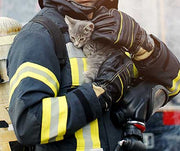
Next article
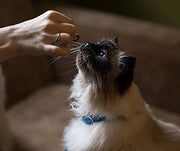
Related posts
View all-
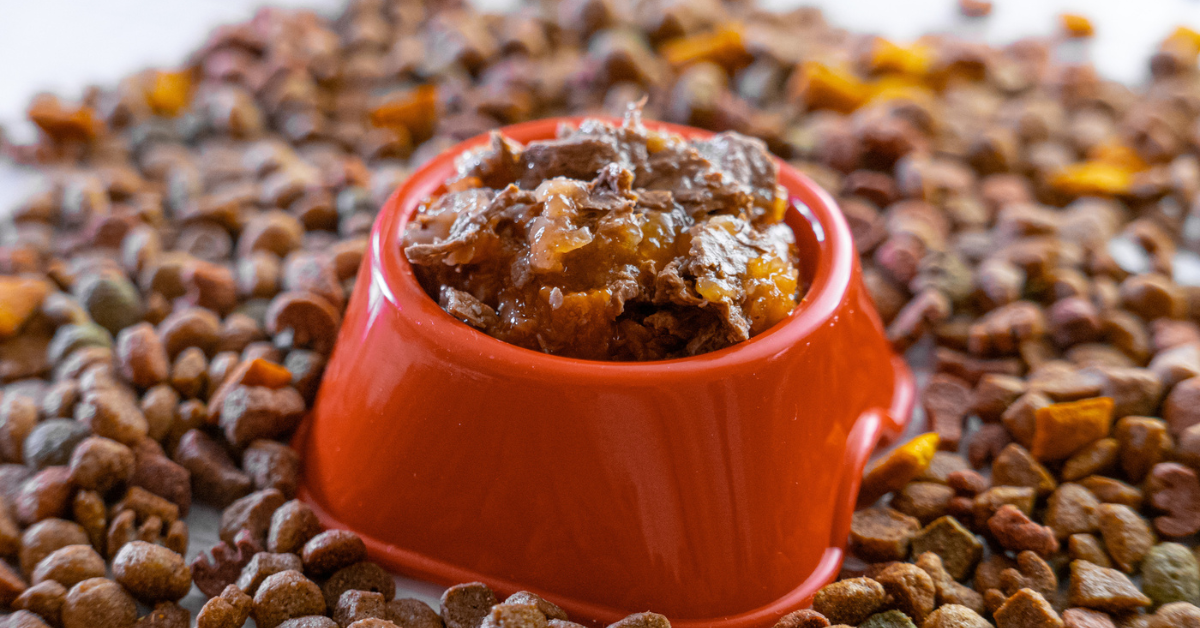
5 Simple Tips to Make Sure Your Cat Drinks Enough Water
Ensuring your cat stays hydrated is important, but it can be challenging since many cats don't drink enough water. Dehydration can lead to kidney disease and other health issues. Fortunately, you can encourage your cat to drink more with a few simple changes. Read Article -
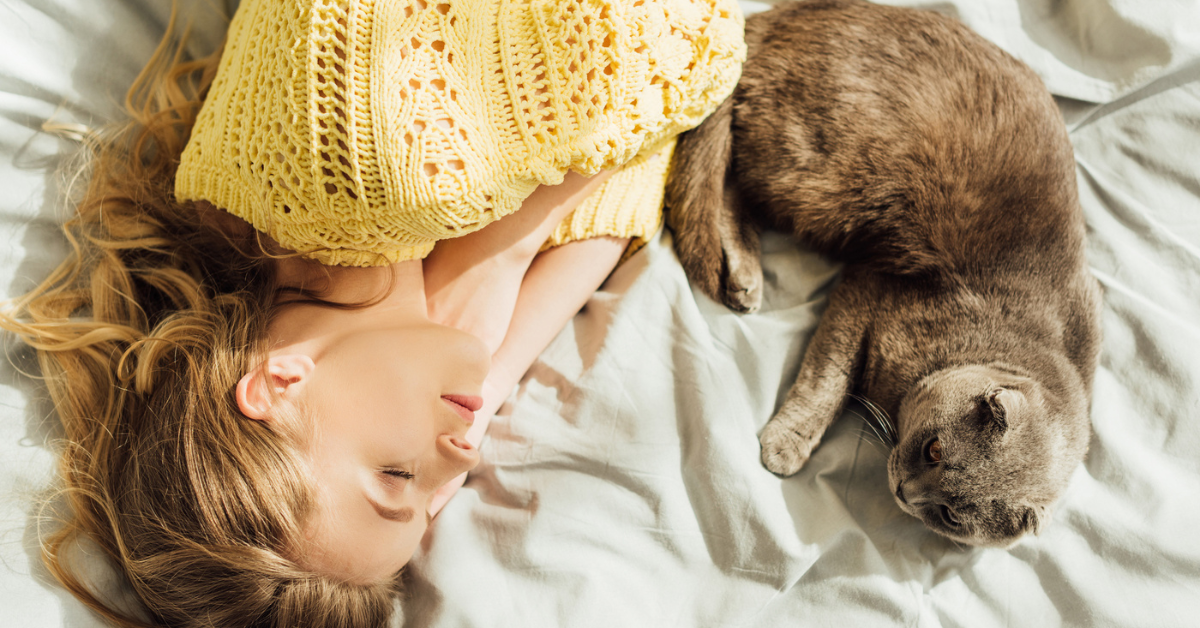
How to Keep Your Cat Busy at Night (So You Can Sleep)
For many cat owners, the quest for a good night's sleep while keeping their feline friends content and engaged can seem like a never-ending battle. Cats, naturally more active at night or early in the morning, often disrupt your sleep schedules with nocturnal activity, whether through playful nature or seeking attention. Read Article -
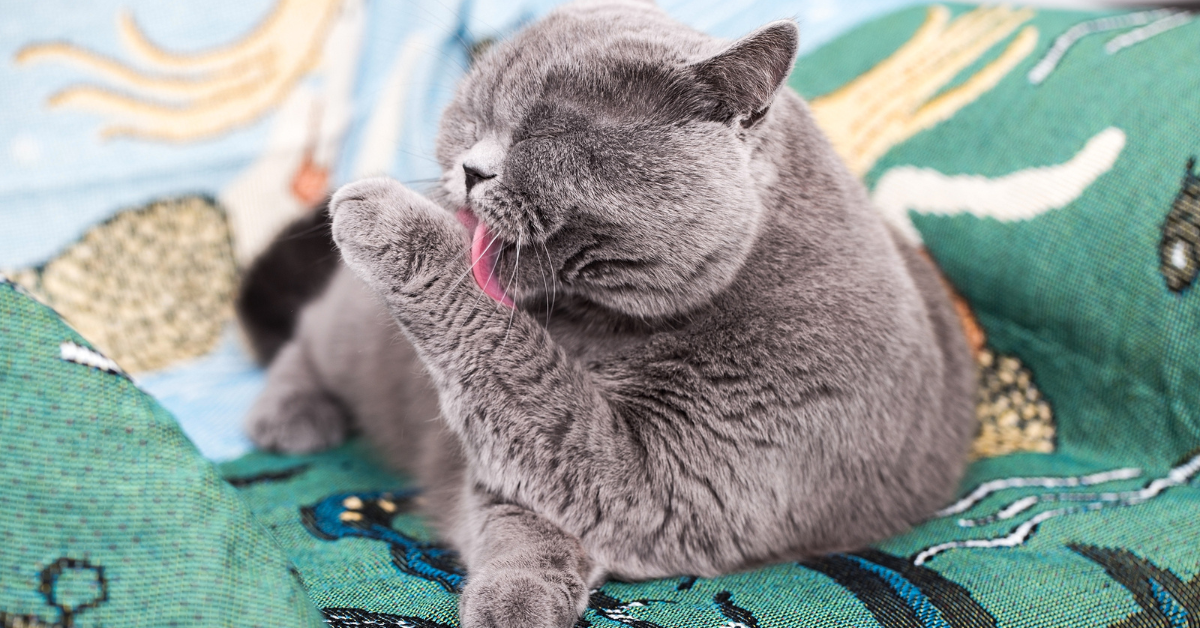
Should You Bathe Your Cat? Everything You Need to Know About Cat Hygiene
When it comes to cat hygiene, a common question among cat owners is, "Should you bathe your cat?" Understanding how to care for felines, especially bathing cats properly, is crucial for maintaining their overall health. Most cats are fastidious groomers, but specific scenarios like long-haired cats getting dirty or skin irritations, might require a bath.
Read Article



